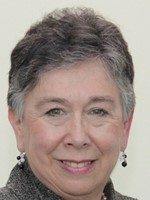

Learners Empowered: Creating Pathways for Agency and Self-Advocacy for All Learners |
Participate and share : Interactive session
Andelee Espinosa Kathleen McClaskey
Discover that when every learner is empowered to know and value their variability and uniqueness, new pathways can be created for agency and self-advocacy by developing skills with tools/apps to support and enhance their learning in either the classroom or remote learning environment.
| Audience: | Principals/head teachers, Teachers, Technology coordinators/facilitators |
| Skill level: | Beginner |
| Attendee devices: | Devices required |
| Attendee device specification: | Laptop: Chromebook, Mac, PC Tablet: Android, iOS, Windows |
| Participant accounts, software and other materials: | Book Creator app (https://bookcreator.com/online/) |
| Topic: | Personalized learning |
| Grade level: | PK-12 |
| ISTE Standards: | For Students: Empowered Learner
|
| Related exhibitors: | Book Creator |
In this interactive session, participants will step into the learner’s shoes first to discover their own learner identity by creating a Learner Profile that includes Who I Am, How I Learn (through using the UDL Lens of Access, Engage and Express), and What I Aspire to Be. By creating their own Learner Profile, they will understand the value of knowing their own strengths, challenges, and aspirations as a foundation for acquiring the lifelong skills of self-understanding, agency and self-advocacy. Furthermore, when they create a Learner Profile of a learner they know or use their own profile, participants will pair up to discuss how to build a Personal Learning Backpack (PLB) of tools, skills and practices to enhance a strength or support a challenge of their learner.
The co-presenter, Andelee Espinosa, has applied this process in practice at the high school level over the last four years with evidence that the learners...
> fully understand and can discuss their strengths an challenges in their learning, in other words, self-awareness.
> develop agency in their learning as they decide on the tools and skills they need to support their learning.
> can self-advocate for what they need to learn with HS teachers in addition to leading their own IEP meetings.
Outline is for 60 minutes but please note that the 90 minute Creation Lab would be optimal for this session. I checked the box for interactive and was unable to go back and change it to Creation Lab.
I. Introduction and Session Goals ; set personal goals (5 minutes)
II. Review the UDL Lens of Access, Engage and Express for participants to create their own Learner Profile (20 minutes for this section)
1. Create a Learner Profile of themselves using the Book Creator "Empower the Learner" Template. (15min)
2. Pair - Share: What did you discover about yourself? (5 min)
III. Create a Learner Profile of a learner they know (30 min for this section)
1. using the Book Creator "Empower the Learner" Template, create a learner profile of a learner they know. (10 min)
2. Pair - Share: discuss and build a Personal Learning Backpack (PLB) of tools, skills and practices to either enhance a strength or support a challenge that their learner has in their learning.(15 min)
3. Pair - Share: What tools or apps did you decide on and why? (5 min)
IV. Review and reflect on their personal goal; point to evaluations (5 minutes)
Bray, B., & McClaskey, K. (2017). How to Personalize Learning: A Practical Guide for Getting Started and Going Deeper. Thousand Oaks: Corwin.
Deans for Impact (2015). The science of learning. Austin, TX: Deans for Impact. Retrieved from https://deansforimpact.org/resources/the-science-of-learning/
Dweck, C. S. (2006). Mindset: The new psychology of success. New York, NY, US: Random House.
Jennings, P. A. (2012). Building an Evidence Base for Mindfulness in Educational Settings. http://www.mindful.org/mindful-voices/on-education/building-an-evidence-base-for-mindfulness-in-educational-settings
Linda Darling-Hammond, Lisa Flook, Channa Cook-Harvey, Brigid Barron & David Osher (2020) Implications for educational practice of the science of learning and development, Applied Developmental Science, 24:2, 97-140, DOI:10.1080/10888691.2018.1537791
Lopez, N., Patrick, S. and Sturgis, C., Designing for Equity: Leveraging Competency-Based Education to Ensure All Students Succeed, 2018.
Osher, D., Cantor, P., Berg, J., Steyer, L., & Rose, T. (2018). Drivers of human development: How relationships and context shape learning and development. Applied Developmental Science, 1-31. https://doi.org/10.1080/10888691.2017.1398650
Pape, B. (n.d.). Learner variability is the rule not the exception. Retrieved from https:// digitalpromise.org/wp-content/uploads/2018/06/Learner-Variability-Is-The-Rule.pdf
Pashler, H., McDaniel, M., Rohrer, D., & Bjork, R. (2008). Learning Styles: Concepts and Evidence. Psychological Science in the Public Interest, 9(3), 105-119.
Rose, T. (2013, June 19). The Myth of Average: Todd Rose at TEDxSonomaCounty. https://www.youtube.com/watch?v=4eBmyttcfU4
Science of Adolescent Learning: How Identity and Empowerment Influence Student Learning, p.13. Alliance for Excellence Education, all4ed.org
Transcend, Inc. Designing for Learning Primer, 2019.

Andelee is passionate about meaningful inclusive practices, UDL, Personalized Learning, utilizing Learner Profiles to help students better advocate for themselves in the classroom & conducting learner-led IEP meetings. In addition to managing freshman and sophomores, she is part of a team that designs meaningful and accessible experiences in Chemistry & Biology for all learners.

Kathleen McClaskey (@khmmc) is CEO and Chief Learning Officer of Empower the Learner, LLC (empowerthelearner.com), Founder of Make Learning Personal (kathleenmcclaskey.com) and co-author of bestsellers Make Learning Personal and How to Personalize Learning. She is an innovative thought leader, international speaker, professional developer, and Universal Design for Learning (UDL) consultant with over 33 years experience in creating learner-centered environments as a teacher, K-12 administrator and consultant. Kathleen is passionate in empowering ALL learners to thrive with tools, skills and practices so they become self-directed learners, learners with agency, who are future ready for college, career and life.